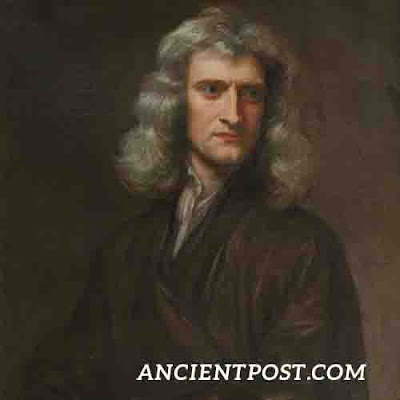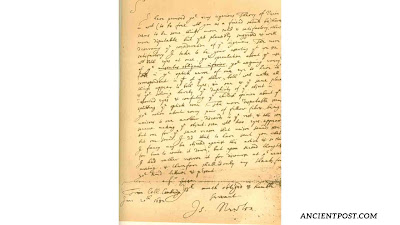Early Life
Sir Isaac Newton was an English physicist, mathematician, scientist and a genius who brought about a scientific revolution in the seventeenth century. Newton is one of the most influential scientists who ever lived. One of his most important works was the law of gravity.
Sir Isaac Newton was born on 4th January, 1643, in England to Hannah Ayscough and Isaac Newton. His father passed away three months before Isaac was born. His mother remarried later. Isaac was brought up by his grandmother. The young Isaac attended the King's School, Grantham, for his primary education. He was very good academically and was one of the top students at his school. His family was not well off, so Isaac also worked to support his family. He left his studies and started working as a farmer. His school principal asked his mother to send him back to the school to finish his studies. And so Isaac graduated with the highest score.
In 1661, Newton went to Trinity College, Cambridge. Attending the university was the most important decision he took in his life. He was able to pursue his interest in mathematics, astronomy and physics. At that time, the education system was based on Aristotle's model, who was a great philosopher. But, Newton was more involved in the modern syllabus and used to read other philosophers' works. Newton became a professor of mathematics. He taught advanced maths. He was also a Fellow of the Royal Society, which is an organization of scientists in the United Kingdom.
In 1665, his university was shut down for two years due to the plague. Thus, Newton came back home. He spent his days studying calculus theories and the law of gravitation. He had soon mastered mathematics. He graduated with an arts degree in 1669. After completing his education, Newton fully focused on his inventions. His major achieve- ments include the study of optics, telescopes, and the law of gravitation. He spent years studying colors and light before he presented his inventions to the society. He researched with the help of a prísm. He proved that sunlight was constituted of all the colors of the rainbow. Newton also explained the concept of white light and how it carried all the colors found in nature.
$ads={1}
Newton's second achievement was inventing the telescope. He built a 6-inch telescope that helped him to see Jupiter's moons. He wanted to see faraway objects sharp and clear. The curved glass lenses used in the telescope worked like a prism. His book on optics and his prism experiments was called Opticks (1704). Robert Hooke was also a member of the Royal Society at this time. Hooke found some faults in Newton's optics theory. Newton was not able to take the criticism very well. He had a very bad nervous breakdown. The same year, he lost his mother. He decided to take a break that lasted six years. During this break, Newton came up with the law of gravitation. He combined the falling of the apple on his head with the idea of the moon orbiting the Earth. Later on, his theory even explained the movement of the planets and the sun.
In 1684, Newton completed his calculations on gravity. Edmund Halley, the famous astro- nomer and mathematician, visited Newton. Halley wanted Newton's help to solve a problem he was facing with one of his experiments. He asked Newton to explain to him the path in which a planet moved around the sun. Halley didn't know that Newton had already solved this question. Newton and Haley theorized that it was an oval track called an 'ellipse'. He also showed Halley his other scientific work and calculations. Halley was impressed by Newton and encouraged him to share these theories with the world. His major success was when he released the book The Mathematical Principles of Natural Philosophy in 1687. The book contained the three laws of motion that set the framework for modern physics. It helped scientists in understanding how the universe worked.
In his later years, Newton became more popular for his scientific work. He formed the well-known formula that calculated the value of Pi, a mathematical constant. In 1703, Newton became the president of the Royal Society after Robert Hooke passed away. In 1705, he was knighted by the Queen of England.
Isaac Newton died on March 31, 1727, in London, England. He was one of the greatest scientists alongside masterminds like Albert Einstein and Galileo.


